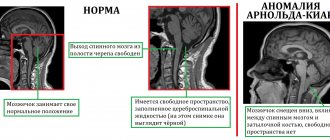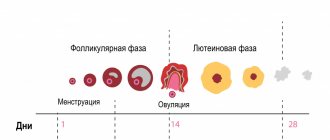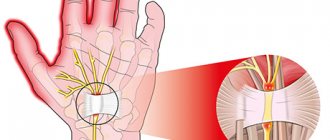Heroin
Heroin is a synthetic opiate and is usually used by injection. Which immediately puts the addict at risk of contracting AIDS and hepatitis. After all, very quickly the addiction progresses so much that the patient ceases to worry about everything except the next dose, even his health and life. Therefore, injections are not always made with sterile needles, in other words, the syringe changes hands.
This white or tinted powder introduces the addict into euphoria and bliss, into a state of complete satisfaction, which is characteristic of the action of all opiates. But the price for this is expensive. After several days of use, when the drug is withdrawn, the addict experiences heroin withdrawal. And it lasts much longer than the effect of pleasure.
What are the dangers of heroin addiction?
Any drug is extremely harmful to human health. Psychotropic substances not only change the human psyche, but also negatively affect the functioning of all organs and systems. But there are especially dangerous drugs that pose a mortal threat to humans, and heroin is one of them.
among heroin addicts occur for a number of reasons:
- Overdose of the drug, which causes respiratory arrest or severe toxic coma;
- Infection with infectious diseases (hepatitis, HIV, etc.) due to the use of shared injection syringes;
- Cirrhosis of the liver and impaired blood supply to the extremities;
- Criminal events: in search of the next dose, a drug addict is ready for any crime, although he is not aware of his own actions.
But the main danger is that the consequences of heroin addiction can manifest themselves even after treatment. This powerful drug seriously affects not only the liver and blood vessels, but also the heart. Therefore, even after successful rehabilitation, a former drug addict will have to constantly monitor his health.
When should you start treatment?
The person who uses this powerful drug gets used to it so quickly that he simply cannot realize the need for rehabilitation. Therefore, a key role is given to the relatives of the addict.
treatment for heroin addiction as early as possible . As a rule, a person who uses such substances can be easily recognized by specific behavior:
- Secretive behavior and frequent mood swings, from violent euphoria to severe depression;
- Lack of appetite, rapid weight loss and frequent napping during the day;
- Hoarseness and hoarseness of voice;
- Use of specific slang;
- Unusual shape of the pupils: they become too wide or too narrow.
In addition, all heroin addicts try to hide their hands or other parts of the body that may contain injection marks. But even if you have suspicions and decide to check your skin for such traces, this does not guarantee that the person is not taking heroin. The fact is that this substance can not only be injected into a vein, but also smoked, and such use does not leave any traces on the body.
Observe a loved one: if the listed symptoms are supplemented by constant lies or the fact that the person always takes a bottle of water with him at night, there is every reason to assume a heroin addiction.
Drug withdrawal
Drug use sooner or later leads to the development of withdrawal syndrome. In case of drug addiction it is called drug withdrawal; in alcoholics it is called alcohol withdrawal syndrome. Drug withdrawal leads to the continuous use of stimulant drugs, because without them, the drug addict begins to experience a number of painful physical and mental symptoms. All these manifestations are called withdrawal syndrome, withdrawal symptoms.
Different psychoactive substances cause withdrawal symptoms at different times after the onset of the illness. There are drugs that are instantly addictive, and there are addictions that develop over several months. Heroin is one of those drugs that only need to be used 2-3 times to cause physical dependence. Withdrawal from heroin is a sign of its development.
Causes of heroin withdrawal
If a person used heroin once (for example, for the sake of curiosity), calling him a drug addict would be incorrect. But when a lover of new sensations thinks about the second time, and then about the third and fourth, there is a high probability that the person is already “hooked on the needle.” However, drugs are not a cheap “pleasure”, and sooner or later the addict will have to experience real withdrawal.
Therefore, one of the reasons is the lack of money, the other is the prohibitions of relatives and employees of the drug treatment center (in the event that the drug addict is kept under control and there is simply nowhere to get a dose from). Or, perhaps, the person himself decided to “quit”, and for the first time encountered a similar condition.
Withdrawal syndrome develops when more than 7 hours have passed after consuming a drug, and the next dose is missing for one reason or another. At the same time, the body demands such a familiar and “favorite powder”, causing a decrease in mood and unbearable pain throughout the body.
For some people, one time is enough to become addicted to a drug. The fact is that after taking a dose, a feeling of liberation and self-confidence appears, enthusiasm and tireless fun are felt. Therefore, only persistent individuals endowed with remarkable willpower can refuse to subsequently take heroin.
How long does heroin withdrawal last?
Narcologists say that heroin withdrawal has individual terms. But the first 3-4 days are considered the hardest. Starting from day 5-6, symptoms gradually subside. If an addict refuses medical help, then withdrawal can last 2 weeks or more (since natural detoxification occurs - cleansing of the body).
The timing of heroin withdrawal also depends on the person’s health status. So, if a drug addict has healthy kidneys and liver, the body will be able to cleanse itself faster (remove accumulated toxic substances). However, if your health has already “failed” (this often happens to those who have an impressive “experience”), the symptoms of withdrawal syndrome will last much longer.
The consequences of heroin addiction include:
- depression;
- irritability;
- metabolic disease;
- the possibility of a relapse (at first, the former addict may still want to return to the “previous path”).
The duration of withdrawal also depends on the length of time you use heroin. Accordingly, the smaller it is, the easier and faster the withdrawal syndrome ends (since the body is less polluted with the drug and its breakdown products), and vice versa.
Is it possible to die from heroin withdrawal?
According to narcologists, this is possible, but only if the addict did not receive timely medical care. After all, they die not because of the lack of a drug in the blood, but because of heart failure or excessively high or low blood pressure. Maintenance medications that are administered by injection in a hospital will help relieve this condition.
Age and “experience” are also crucial: if a person is young (18-30 years on average) and takes drugs for a relatively short period of time (from several months to two years), death most likely will not occur, because the body will be able to cope with the symptoms of heroin withdrawal. If the situation is exactly the opposite, a fatal outcome is not excluded.
Formation of physical affection
If a drug is used constantly, the human body gets used to it. Heroin is included in the metabolic processes of the body, in its metabolism. These are complex and subtle biochemical reactions in which the drug itself or its derivatives are embedded. As a result, it has a direct or indirect effect on every cell of the body. Naturally, the impact is negative, destroying cells and tissues.
On the one hand, this leads to a general slagging of the whole body; it is because of this that almost all drug addicts have concomitant chronic diseases that arose during the period of use. It also leads to physical dependence.
If a dependent person at this stage of the disease reduces the dosage of the drug or stops using it, then he experiences withdrawal symptoms. It is characteristic of the second stage of drug addiction and means that the patient has fully developed physical dependence. Now, in order to return to normal functioning, the body needs time; during this period, painful withdrawal symptoms appear. With heroin addiction, they are especially painful. However, under the supervision of a narcologist, it is possible to overcome heroin withdrawal with virtually no pain.
What does heroin withdrawal look like?
Heroin withdrawal cannot be compared with the sensations that arise when, for example, quitting nicotine. During withdrawal, the addict experiences the following:
- the drug ceases to dull pain;
- The body no longer has its own strength to fight pain.
The result is intense pain, fever, nausea, burning throughout the body, which none of the legal painkillers helps with. The pain is so severe that shock can develop, leading to death. And this continues not a day or two, but longer - until the body’s ability to produce endorphins is at least partially restored.
And that's not it. Stopping the production of endorphins leads to depression. A heroin addict in withdrawal does not see any bright spots; it is difficult for him to function. The only way out for him is to find a new dose.
Narcologists identify four key stages of heroin withdrawal.
- The first phase, 8–12 hours from the moment of taking the drug. The pupils dilate, tears begin to flow, the addict sneezes and yawns. He experiences tension, the feeling of dissatisfaction increases.
- Second phase, 30–36 hours from the moment of taking heroin. Painful sensations begin in the muscles, in the jaw, chills, fever, and “goose bumps” appear.
- Third phase, 40–48 hours after consumption. Symptoms increase, muscle pain intensifies, the body begins to “twist”. The drug addict experiences constant discomfort and cannot find a position in which the body does not hurt. Irritation increases, the person can become angry and aggressive.
- The fourth phase, which forms on the third day and lasts 5–10 days. Abdominal pain, general intestinal upset, diarrhea and vomiting appear.
Withdrawal symptoms are most severe 2–4 days after stopping the drug. Heroin withdrawal is characterized by acute psychosis, paranoia, and hysterics. Mental disorders remain with the patient even after the end of physical withdrawal: heroin addicts experience depression, anxiety, depression, even suicidal impulses.
Psychological dependence
The disease drug addiction is complex; even the irresistible craving for a drug itself has two components: psychological and physical dependence.
As a rule, addiction is first formed in the psyche. It occurs for a reason; the patient has within himself a predisposition to develop the disease. Unfortunately, almost every person has mental characteristics that can lead to drug addiction.
If someone has problems with communication, with building harmonious happy relationships, achieving success and goals, we can say with confidence that behind this there are some complexes, fears, imposed beliefs and attitudes that prevent the person from being fully realized as a happy and successful person. In this case, the psyche is looking for a way to eliminate the problem, and usually there are two of them: solve the problem and forget about it.
Drugs allow you to do both. Of course, such a “solution” to a problem situation will be dubious, but at first, drugs, and heroin in particular, really help you loosen up, become more active, and even increase your status in some social groups. By clouding a person’s mind, they make it possible to completely erase problems from one’s head for a while.
So, after several uses, which at first bring euphoria and the illusion of resolving difficult situations, the human psyche becomes attached to the process of taking heroin and begins to identify it with something positive.
How long does heroin withdrawal last for an addict?
The development of drug withdrawal is painful for a person. After the acute phase, the addict remains with a strong craving for the drug. After detoxification in the clinic, the attraction will remain - comprehensive rehabilitation is needed. Subacute withdrawal syndrome can last up to six months, and the fragmented phase of addiction lasts about 3 years.
Without recovery treatment, another drug use inevitably occurs, and everything starts all over again. Therefore, to treat drug addiction, an integrated approach and long-term recovery are required, from 6 months to 1 year. The body of a drug addict does not have time to recover in 2 weeks - 1 month. He needs to learn to overcome cravings, restore his psyche, and change his thinking. When a patient ignores doctors' recommendations, a relapse occurs. The next withdrawal becomes even more unpleasant and severe, the addiction progresses.
Heroin addiction
Heroin addiction is one of the most severe forms of drug addiction. Firstly, the addict develops a very strong psychological attachment to the incredible euphoria that he experienced during his first drug use. Although it is now impossible to achieve this effect, the desire remains. Total peace and relaxation, peace and contentment served as excellent bait for the patient’s psyche.
Heroin easily penetrates the brain, bypassing the blood-brain barrier, where it behaves similarly to morphine. Very quickly, the drug completely depletes the nervous system, leading to aging. Heroin overstimulates the brain's opioid receptors, which causes these effects. In all other systems of the body, it causes severe intoxication.
Treatment of withdrawal symptoms in a hospital
Elimination of withdrawal syndrome in a clinical setting involves drug and hardware detoxification.
The treatment regimen is selected individually. Medication therapy lasts about one week. It involves intravenous drip administration of large volumes of saline and glucose. This allows the bloodstream to be filled with fluid, which helps activate the function of the kidneys, which remove heroin metabolic products from the body. Large doses of diuretics are also used for the same purpose.
To normalize blood pH, the constancy of the internal environment of the body, acid-base and mineral balance, saline solutions and microelements are administered. Here, Ringen's solution, Reosorbilact, Glycosteril or their analogues are prescribed. Such steps help to increase the volume of circulating blood, which also activates kidney function.
The next step is supportive care for patients. It helps restore the nervous system, respiratory organs, and blood circulation. It is also necessary to normalize and support the liver through the introduction of hepatoprotectors - Essentiale, Heptral, Gepamerz.
Hardware techniques include plasmapheresis, hemodialysis, hemosorption, xenotherapy, laser cleaning. The first three are carried out extracorporeally, when blood is taken from the patient, after which it is passed through special filters, and then reinjected. Xenotherapy involves the introduction of xenon into the blood.
Another option for treating withdrawal symptoms is URRT (ultra-rapid opioid detoxification). Patients are given antidotes to heroin - Naloxone or Naltrexone. They block the functioning of opioid receptors in the brain, and also accelerate the release of heroin breakdown products from the endings of nerve cells. Patients under UBOD fall asleep and remain in this state throughout the entire period of abstinence. After waking up, signs of withdrawal may persist for about two days.
Effect of heroin on the body
Constant intoxication and peculiarities of use during heroin addiction cause irreparable harm to the body:
- Infection with AIDS and hepatitis. Addicts completely neglect hygiene.
- Pathologies of the heart and blood vessels.
- Metabolic disorders.
- Liver pathologies.
- Mental disorders.
Most addicts die within a few years after the onset of the disease, most often death occurs from an overdose. Why do so few people strive to get rid of the disease if it brings such risks to life? The answer is simple - heroin withdrawal is one of the worst.
How long does heroin withdrawal last?
Heroin, like any drug, causes physical dependence. But not every drug can compete with it in the duration and strength of painful symptoms during withdrawal.
Heroin withdrawal begins approximately 9 hours after the last dose of the drug. A person becomes worried because if he does not find a new dose, then something awaits him that psychologists recommend not asking former heroin addicts about.
Nervous tension increases, turns into aggression, fear and a feeling of danger arise, you want to run away, hide. On the second day, heroin withdrawal takes on new colors. The addict begins to experience its physical symptoms, this is somewhat reminiscent of a cold: runny nose, chills, sneezing. During withdrawal, sweating occurs, salivation increases, tears flow, and pupils dilate.
By the time withdrawal from heroin addiction lasts the third day, the patient loses his appetite, becomes nauseous, and suffers from serious gastrointestinal disorders. While withdrawal continues, an addict can lose more than ten kilograms in weight. The person is completely exhausted, convulsions begin.
By this time the patient no longer thinks about how long the withdrawal lasts; for him it merges into one painful infinity. There is a feeling as if muscles are torn, bones are broken, joints are twisted. The veins in the injection area are very itchy. At this stage, in order to get rid of pain, the patient may begin to bang his head against walls and furniture. His appearance is terrifying, his skin is earthy in color.
Symptoms usually worsen for 3-4 days, then begin to subside. If left untreated, withdrawal symptoms can last up to two weeks.
Dealing with withdrawal symptoms at home
Regardless of the length of drug use, every drug addict develops withdrawal symptoms. Relatives need to know that with heroin addiction, withdrawal is the most severe condition. In some cases, it threatens the life of the addict.
Treating heroin withdrawal at home is dangerous and ineffective. The risk of quickly returning to your usual lifestyle increases. Under the influence of unbearable pain and emotional instability, drug addicts strive to return to the company and find a new dose. The threat of disruption is practically unavoidable. Inpatient treatment is the only correct way to get rid of heroin withdrawal.
Basic advice from psychologists to relatives of drug addicts:
- in a state of withdrawal, a loved one becomes dangerous to others, loses the instinct of self-preservation, and can harm himself or others;
- it is impossible to create conditions for complete detoxification and safe treatment at home;
- drug addicts know how to manipulate the feelings of loved ones, cause strong pity, forcing them to find a new dose;
- Over-the-counter medications are ineffective for aching and withdrawal symptoms.
It is difficult for relatives to recognize drug addiction in a loved one. In an effort to hide the problem from others, they self-medicate. During withdrawal, the drug addict is offered alcohol in an attempt to relieve pain. This only aggravates the problem: alcohol breakdown products cause irreparable damage to the liver, kidneys, nerve cells and neurons of the brain. Complications, including death, may occur.
An experienced narcologist knows how long withdrawal lasts, so he does not conduct treatment at home. It is necessary to provide round-the-clock surveillance and limit the circle of contacts. Only in a drug treatment clinic can powerful drugs be used to alleviate the condition of a drug addict.
How to cure drug addiction?
In a situation with heroin addiction, we are talking only about inpatient treatment. It must include all the mandatory stages of chemical dependence treatment:
- Complete detoxification.
- Long-term rehabilitation.
- Socialization.
Most likely, in the case of heroin addiction, professional motivation will be needed. During treatment, special attention is paid to restoring all body functions impaired by heroin use. A psychologist has a lot of work to do, because the mental attachment to heroin is very strong.
Treatment of heroin addiction in
The process of treating heroin addiction is extremely difficult, because specialists must relieve acute conditions, withdrawal symptoms, eliminate physical attachment, and the psychological causes of the disease. In addition, it is not enough to simply cure a heroin addict and return him to a normal lifestyle. After all, his condition is still unstable; a person needs some time to adapt to a new life. During this period, he also needs the help of doctors.
Today you can see a lot of offers for the treatment of drug addiction diseases, not all of them include a full range of services or provide the opportunity to conduct a full course of treatment and rehabilitation for addiction. There are clinics and centers that specialize only in emergency care, or, on the contrary, in rehabilitation after drug treatment.
Ours provides its clients with support and quality treatment at absolutely all stages of the treatment course. If a loved one develops a heroin addiction, you can call a narcologist to your home to relieve withdrawal symptoms, use the service of motivation for treatment, or hospitalize the patient. We provide complete detoxification and drug treatment for addiction, as well as long-term psychological rehabilitation. Post-treatment support by our specialists helps the recovering person calmly settle into a new sober life without the risk of breakdowns, which is extremely important for heroin addiction.
However, it is not enough just to know about such opportunities. After all, while you are thinking and planning without doing anything, the patient risks his life every day, and his body receives irreversible damage that can make him disabled, even if the addiction is cured. And no one has canceled overdoses, especially among heroin addicts.
Therefore, we sincerely recommend that you do not hesitate, but ask all your questions regarding treatment today, draw up a rough plan, and find out the estimated cost. It's free and doesn't obligate you to anything. You can do all this at any time by calling our hotline, its number is listed on the website page. You can also fill out any feedback form and receive a call back from our consultant.
Treatment in: reviews
Drug addiction is one of the main problems of modern society, and many people never manage to get rid of addiction forever. A skeptical attitude leads to the fact that people do not even want to try to save a loved one, although this approach is absolutely wrong, especially when it comes to.
On the official website of the center there are many video interviews with former Versio patients who successfully completed rehabilitation and not only became full-fledged members of society, but also acquired the necessary skills to help other addicts. The center's management sincerely hopes that such videos will provide the necessary motivation and give hope for a return to normal life to those who have already become completely disillusioned with treatment.







